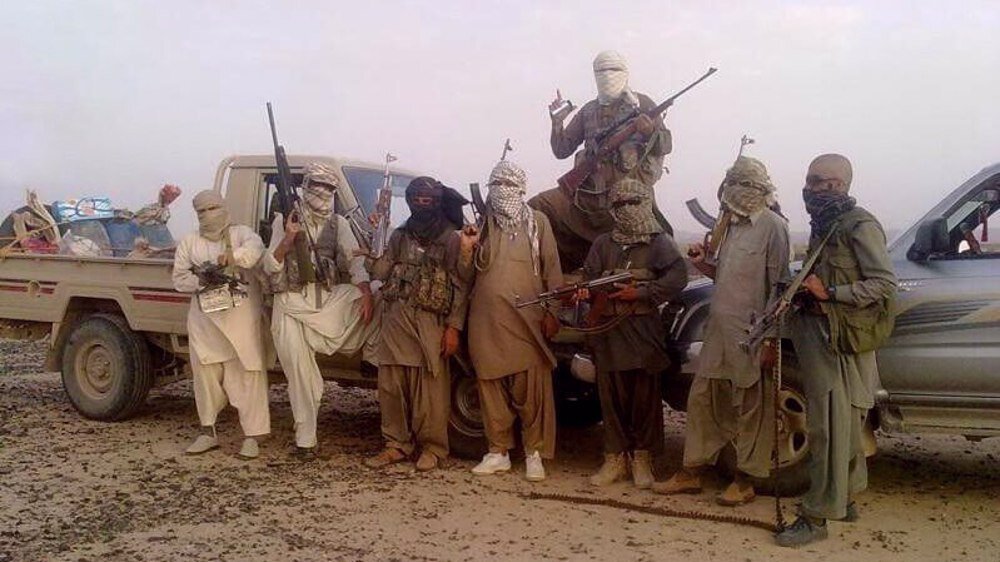Iran ramps up pressure on Pakistan-based terrorist group with elimination of ringleader

TEHRAN – Iran has stepped up security measures to curb terrorist chatter southeast of the country, after attacking the so-called Jaish Al-Adl terrorist group’s headquarters in unprecedented airstrikes early this year.
On Friday the Mehr news agency reported that expeditionary Iranian forces had carried out a ground operation that led to the liquidation of Jaish Al-Adl’s ringleader Ismail Shah Bakhsh and a number of his associates. It did not specify which unit of Iranian armed forces conducted the offensive nor did it reveal what exact region was targeted.
While some Western-aligned Pakistani media outlets claimed that the terrorist’s death was the result of an armed dispute between smugglers, the Tehran Times’ further exchanges with Mehr confirmed the veracity of the initial report.
Jaish Al-Adl was established in 2012 in Pakistan by the remaining members of a dismantled terrorist group active in the southeastern province of Sistan-Balouchestan. The group called Jundallah which was responsible for the death of over 150 civilians ended its activities after its leader Abdolmalek Rigi was arrested and executed in June 2010.
The so-called Jaish Al-Adl has also been staging terror attacks in Sistan-Balouchestan, so far killing over 100 Iranian individuals. Its most recent attempt to foment chaos in the border region was thwarted by Iranian forces who carried out airstrikes on the terror outfit's headquarters inside Pakistan. It was reported that the attack killed a substantial number of terrorists and decimated its logistics and weapons.
The attack on Pakistani soil was followed by what seemed to be a retaliatory strike by Islamabad. Pakistan claimed it had targeted separatists inside Iran. Tehran confirmed that no Iranian nationals had lost their lives during the offensive.
The reciprocal airstrikes caused the traditionally friendly ties between the two nations to fray with Pakistan calling back its envoy and barring the Iranian ambassador from returning to Islamabad until further notice.
While the two neighbors managed to repair ties and re-exchange envoys in a short period, Israeli and Western media outlets seemed to be hoping for gaps between the two Muslim countries to deepen.
On January 25 the Atlantic Council suggested that while Iran and Pakistan had managed to move past a short period of fractious ties, their strikes on each other's territories were likely to leave “lasting diplomatic damage”.
“The strikes last week will alter regional dynamics with a long-term impact on bilateral ties between Islamabad and Tehran. While the immediate crisis will subside, an intensifying security dilemma will be permanent for Pakistan,” wrote the Atlantic Council, echoing the remarks of several other Western outlets and think tanks that were hoping for Iran-Pakistan relations to eventually nosedive.
It appears however that those predictions (or perhaps whishes) failed to materialize as the latest Iranian operation against the Jaish Al-Adl points to a deeper security cooperation between Iran and Pakistan.
“The exact nature and location of the operation is not yet revealed. But what’s clear in my opinion is that the elimination of Shah Bakhsh could not have happened without thorough coordination between Iran and Pakistan,” Nozar Shafie, a senior expert on South Asia, told the Tehran Times.
“Despite Western expectations, the January attacks have caused Iran and Pakistan to grow closer ties. Both countries are now more determined to combat terrorism and fully understand that rather than rivals, they are regional partners. I think more will be done in the future to secure the borders and territories of Iran and Pakistan with this new understanding of the situation.”
Culled from Tehran Times

